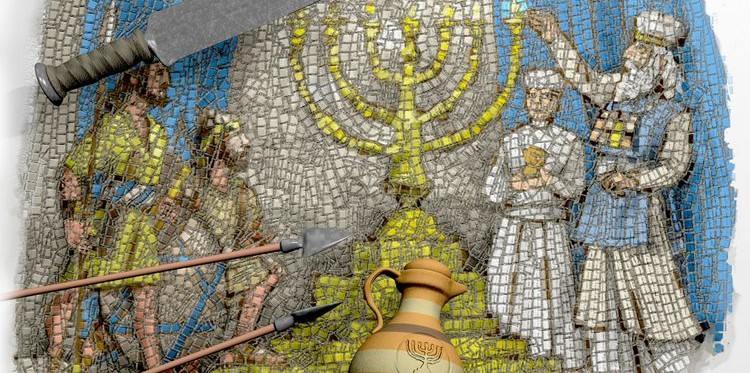
Hanukkah is one of the most anticipated and joyous of all Jewish festivals. Although the celebration always begins on the 25th day of Kislev, the ninth month on the Hebrew calendar, that date can fall anywhere between late November and late December on the Gregorian calendar. This year, the eight-day festival will begin at sundown on December 22, 2019, and continue through December 30, 2019.
The "Festival of Lights" tells the story of an army of rebels who revolted against the Seleucid Greek King Antiochus, who ruled over Judea, or the Land of Israel, more than 2,000 years ago. According to the folklore, the Greek king, who reigned from 175 BC to 164 BC, outlawed the Jewish religion and ordered Jews to worship Greek gods instead. To make matters worse, in 168 BC, his soldiers massacred thousands of people in Jerusalem. They also violated the Second Temple, the central Jewish place of worship, by installing an altar to Zeus and sacrificing pigs (considered non-kosher, or not fit to eat by Jews) inside the sacred structure.

In 165 BC, the citizens, led by the Maccabees, finally managed to overcome the Greek tyrants and reclaim the temple. Upon stepping inside, they found a tiny jar with just enough oil to light the eight candles of the menorah for a single day. However, to everyone's surprise, the candles burned brightly for a full eight days, giving residents enough time to prepare a fresh batch of kosher oil. Soon after, an eight-day festival was declared to commemorate the religious freedom and the great oil miracle, and Hanukkah, which means dedication, was born.
Though many beloved traditions have been added since the inaugural celebration, lighting the candles of a candelabrum with nine holders to mark the Hanukkah miracle remains the most important ritual. Jewish families begin each night's ceremony by lighting one candle at a time. The ninth candle, known as the shamash (attendant), is used for kindling the others.
As with most fun festivals, food plays a pivotal role in the celebration. To honor the miracle olive oil that led to the start of the holiday, many traditional Hanukkah delicacies are deep-fried. Among the favorites are potato pancakes, called latkes, and jelly-filled donuts known as sufganiyot.

The delicious meal is followed by an evening of fun family games. The most popular one involves a four-sided spinning top called a dreidel. Participants begin with an equal number of game pieces – which range from candy to nuts to chocolate coins. After donating a game piece to a mutual pot, the players take turns spinning the dreidel. Each side features a different letter, which together form the acronym for “Nes Gadol Hayah Sham,” or “a great miracle happened there,” referring to the oil lasting eight days in ancient Israel. Depending on the side the dreidel lands on, participants can lose a game piece to the mutual bowl, or hit the jackpot and win the entire loot.
Given that the holiday is close to, or, as is the case this year, coincides with Christmas, gift-giving has become a big part of the celebration. However, unlike Christmas, when the presents are distributed in a single day, Hanukkah gifting lasts the entire eight days! It is no wonder the holiday is so popular with kids!
Happy Hanukkah!
Resources: History.com, Wikipedia.org
